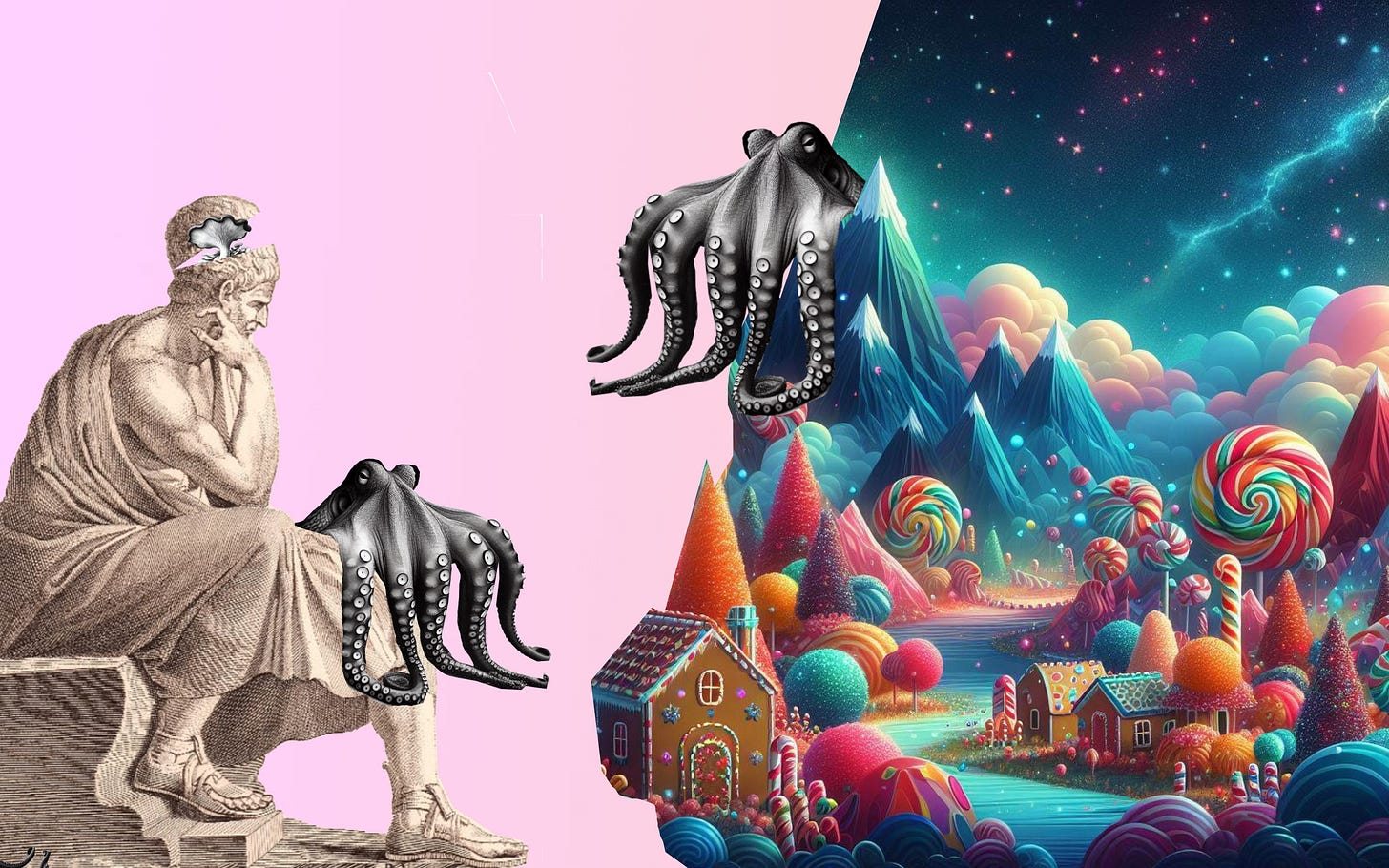Welcome to Rewilding Philosophy, a newsletter about practical (eco-)philosophy in the Anthropocene or amidst the apocalypse. I oscillate between the two. The Anthropocene is too abstract and the apocalypse is too dark. At the same time, I do believe humans deeply influence the planet and I don’t believe that we will walk out of this without a lot of destruction - it’s already happening. The term Anthropocene was officially rejected after 15 years of debate. Anyways, wether we live in the Anthropocene or the apocalypse, I hope you are doing well. Welcome to new subscribers, glad you made your way here.
I believe the real purpose of philosophy is the fully embodied experience of the world.
In my research the past couple years, I explored the concept of leverage points for sustainability, questioning how the mechanistic paradigm has shaped our understanding of the world and how a more relational approach could be the key to overcoming these challenges.
One of the most fascinating discoveries I've stumbled upon in this research is the analogy between mechanistic and relational philosophies as being akin to our brain's left and right hemispheres. Ian Mc Gilchrist brilliantly unfolds this comparison in his work "The Master and His Emissary: The Divided Brain and the Making of the Western World.” The left hemisphere leans towards focused attention, breaking things down into logical bits, and analyzing abstract ideas - similar to the mechanistic paradigm. The right hemisphere thrives on holistic thinking, intuitive connections, and embracing the bigger picture of entangled experiences, which aligns with the more relational philosophies.
If it is true that our mechanistic paradigm is rooted in our left brain and our relational paradigm is rooted in our right brain, then the question is: in how far are our philosophies rooted in our biology? The idea that our mechanistic philosophies align with the left brain while relational philosophies align with the right brain opens up a whole new realm of questions about the biological underpinnings of our philosophies.
But it doesn't end there. Our philosophies are also deeply influenced by what's known as the 4E framework, developed in cognitive science. Our cognition isn't just boxed within our skulls; it's tied to our bodily experiences (embodied), embedded in our socio-cultural surroundings, extended through tools and technologies, and actively enacted through our interactions with the environment.
“Being embodied places us in unresolvable relation to networks of other beings such that living our lives relies on the suffering and death of others.” Alexis Shotwell
The incorporation of the 4E framework adds another layer of complexity to our understanding of philosophy. Our philosophies don’t emerge out of a vacuum. Instead, they are inseparable from our bodily experiences, socio-cultural contexts, external tools, and intra-actions. Our philosophies evolve from this entanglement of biological, cognitive processes and environmental stimuli. They emerge our of our 4E cognition as well as out of our biology (4E+b).
Living philosophically then entails not only intellectual stimulus, but also embodied engagement with the world, which means a practice (áskesis) that embraces the enmeshment of our ways of knowing, being and acting within socialecological realities.





This is an excellent summary of the 4E framework (embodied, embedded, extended, and enacted) for philosophy!
Thanks for writing this! Very interesting to hear about the 4E framework. My own writing is in part shaped by a component I have thought of as "immersion", here is a quote from one of my first essays (https://tmfow.substack.com/p/language-and-meaning): "We are always immersed in reality, always in it, we always find ourselves in continuity with a remembered past, with our surroundings, with a stream of sense perceptions, and with a line of thought. Each of these contexts we are immersed in as individuals are themselves immersed in larger contexts made up by clusters of other people, which again are immersed in larger contexts of larger clusters, and up the hierarchical network we can keep going. These clusters are what make history and tradition, and thus the intellectual background from which each of us reach out from."
I return to immersion in several of my essays, "Philosophy for our Future" and "World Views" come to mind. Looking forward to learning more about the 4E framework to develop this line of my project!